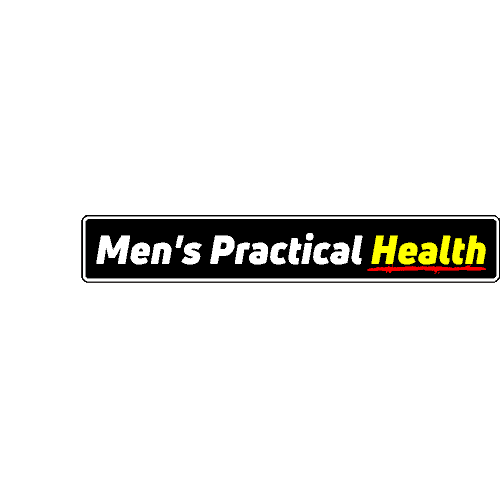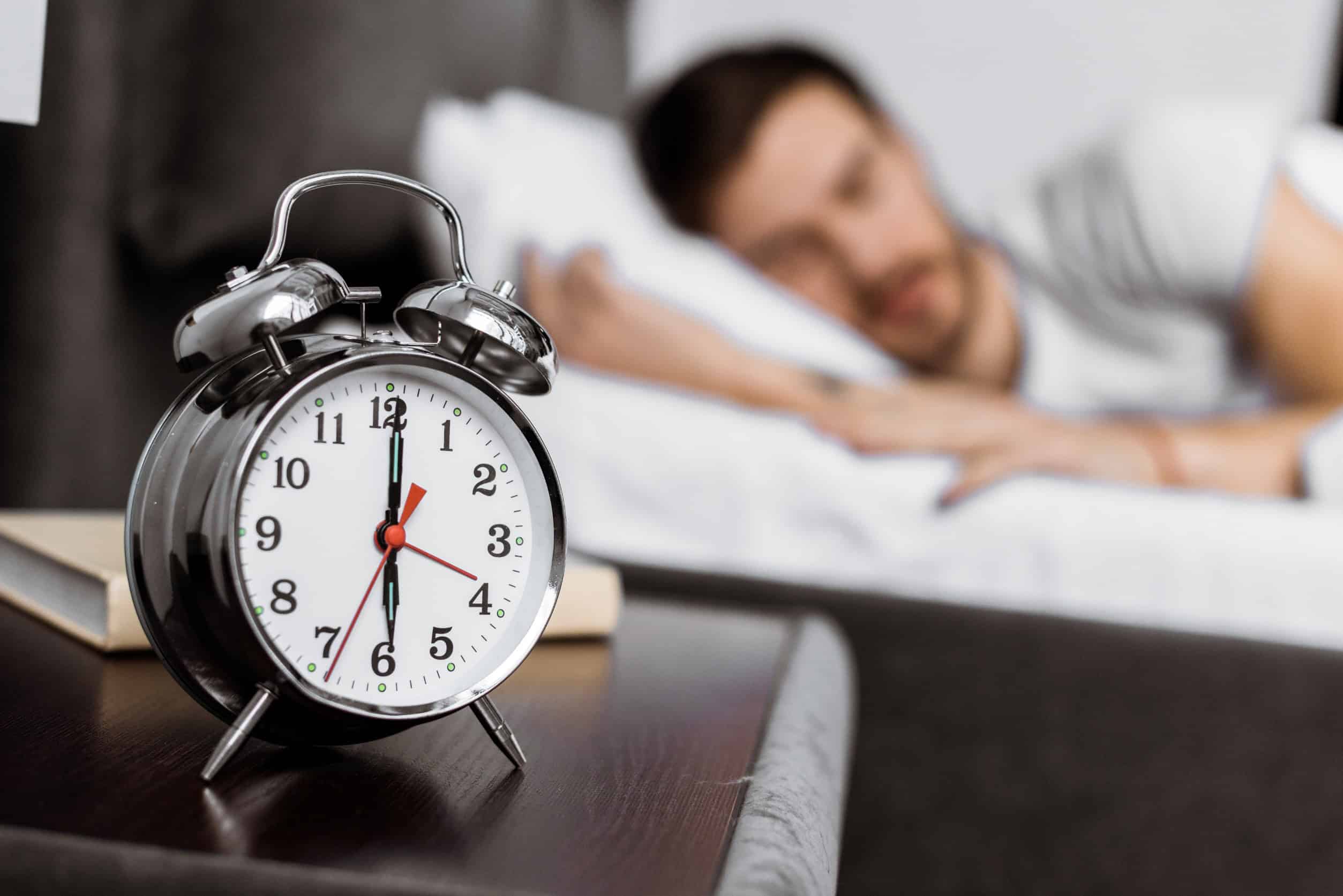You’re hitting the gym hard, nailing your diet, but those biceps still aren’t popping like you want? Time to ask yourself an unexpected question: “Am I getting enough hours of sleep to build muscle?”
The truth is that sleep is more important than a post-workout protein shake. It’s also as crucial as the reps in the weight room. A good night’s sleep is so important for muscle recovery, hormonal balance, and general fitness.
So, let’s dive into why sleep is the secret sauce for muscle growth and get some answers to your sleep-and-muscle questions.
The Importance of Sleep for Muscle Growth
When you hit the sack, your body doesn’t just shut down; it gets to work repairing and rebuilding muscle tissue.
Research has shown that sleep deprivation can throw a spanner in the works, decreasing muscle size and strength. On the flip side, getting enough sleep can supercharge your growth and recovery. Making it an indispensable part of any muscle-building program.
So, if you’re serious about those gains, make sure you’re clocking in those hours of sleep.
Muscle Repair and Growth During Sleep

During sleep, your body goes through a series of physiological changes that are vital for repairing and growing muscle.
One key player in this process is the release of growth hormones (HGH). This hormone stimulates protein synthesis, which is crucial for muscle growth and repair.
Additionally, sleep helps to reduce muscle inflammation and promote healing, making it an essential component of the muscle-building process.
So, while you’re dreaming, your body is hard at work, ensuring you’re ready to crush your next workout.
Will One Night of Bad Sleep Ruin Gains?
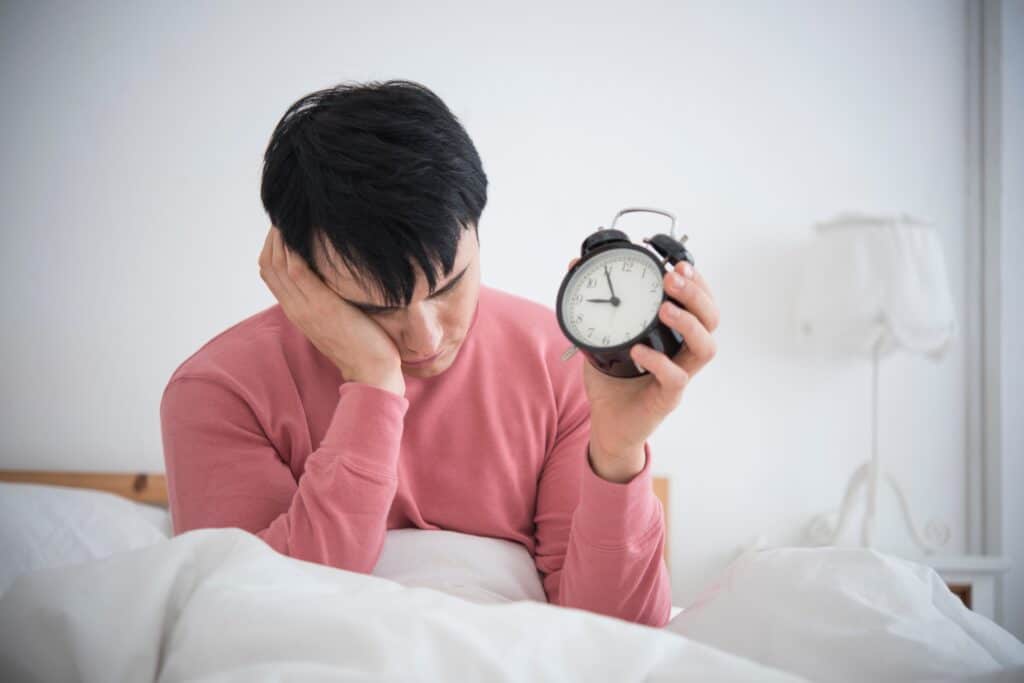
We’ve all been there: tossing and turning all night and wondering if we’ve destroyed the recovery process.
A study found that a single night of sleep deprivation decreased muscle protein synthesis rates by 18%. This is also accompanied by increased cortisol (a catabolic hormone) and a reduction in testosterone levels.
Overall, one night of poor sleep isn’t going to instantly ruin your gains. However, not having enough hours of sleep on a regular basis could have long-term effects on recovery and adaptation, according to another study.
Adequate sleep duration is crucial for muscle recovery and growth, as both the total amount of sleep and the quality of sleep are essential for optimal protein synthesis and muscle maintenance.
So, if you have one rough night, let it go. But string too many together, and you might start to see a delay in gains.
How Much Sleep Do You Need for Muscle Growth?
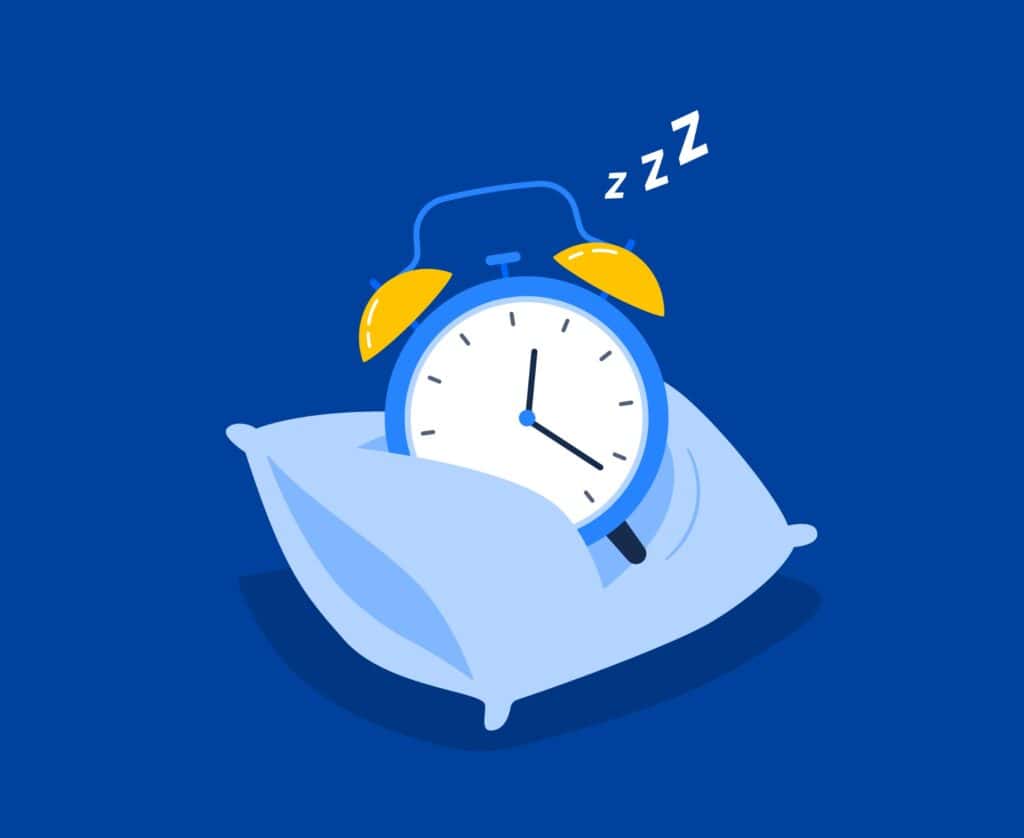
Let’s cut to the chase: you need 7 to 9 hours of sleep per night for muscle growth. During deep sleep, your body pumps out growth hormones and gets to work on muscle repair and recovery. Basically, it’s the body’s version of construction time.
Adequate sleep facilitates the creation of new muscle tissue, which is crucial for muscle recovery and growth.
According to the National Sleep Foundation, solid sleep helps rebuild muscle so you’re fresh and ready for the next high-intensity workout. Not to mention, quality sleep boosts mood, reduces injury risk, and enables you to feel like the champion you’re building yourself to be.
Does Oversleeping Ruin Gains?
Good news for weekend warriors who love a lazy Saturday morning-occasionally sleeping in won’t cancel your progress. Oversleeping doesn’t directly hurt muscle mass or muscle recovery. But if long, frequent sleep cuts into your daily routine or workout schedule, it can lead to a sedentary lifestyle that could ultimately hinder your progress.
Find your sweet spot, get enough sleep without overdoing it, and your gains will thank you.
Can You Build Muscle with Sleep Deprivation?

Building muscle without enough sleep is like trying to bulk up on celery—it’s just not going to give you what you need.
Sleep deprivation slows down recovery, reduces your energy, and can leave you feeling (and looking) flat. Growth and anabolic hormones (key players in repairing muscle) are not released as efficiently with restricted sleep.
So, yes, sleep-deprived people can still make it to the gym, but they’re battling an uphill climb when it comes to building muscle strength and achieving the best body composition.
Do Naps Count as Sleep?
Absolutely! Naps can be a powerful tool for making up for missed hours of sleep. Let’s be clear though: naps should complement your night time sleep rather than replace it.
If you couldn’t manage those total hours of sleep last night, a quick 20 to 30-minute nap can do wonders to recharge you. Just be careful not to nap too long and end up wide awake when you should be hitting the pillow at night.
Do Naps Build Muscle?
Naps alone aren’t going to pack on muscle. However, they can indirectly support your goals.
The research indicates that a one-hour post-lunch nap can help avoid declines in performance due to partial sleep deprivation in some exercise. This means that on those occasions when you have a bad night’s sleep, you can still train effectively if you snooze during the day.
It’s also been found that napping aids muscle recovery.
So, if you combine a good nights sleep of 7 – 9 hours per night, along with a nap, this can only boost your recovery. Helping you build muscle.
So, if you need a midday boost, take that power nap and let it support your progress.
Tips for Improving Sleep Hygiene
To maximise muscle growth, optimise your sleep hygiene. Here are some quick tips to get you sleeping like a pro:
Stick to a Consistent Sleep Schedule
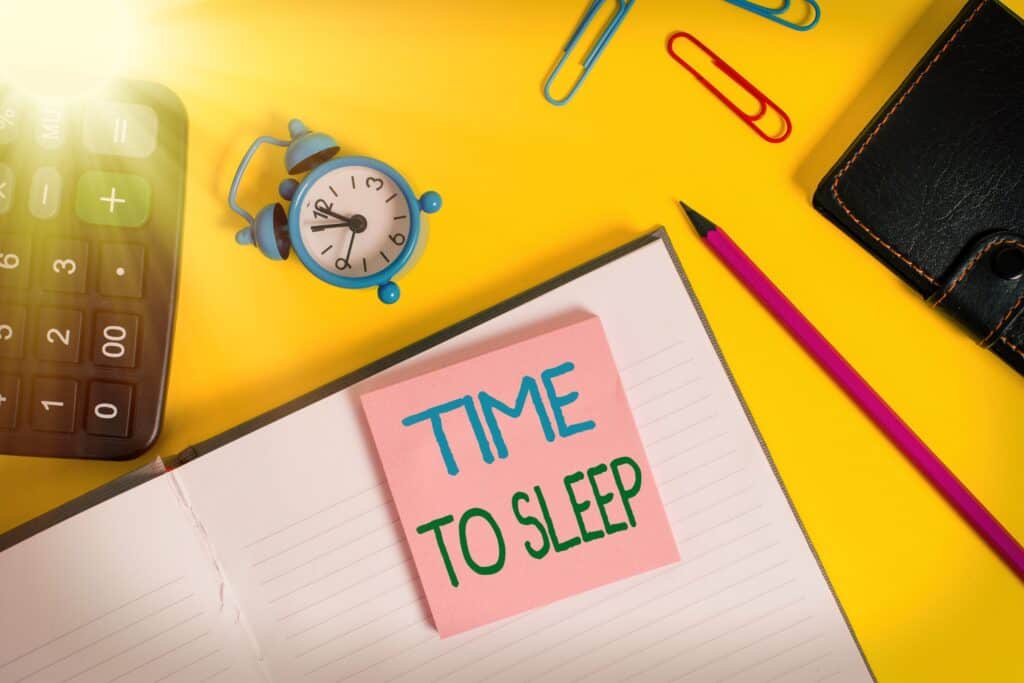
Going to bed and waking up at the same time each day helps maintain your body’s internal clock, so it’s easier to get into deep sleep and recharge.
Create a Relaxing Bedtime Routine
Keep screens at bay, and try something else like reading. Sleep quality can drop when your brain is buzzing with blue light from devices right before bed.
Optimise Your Sleep Environment
Aim for a cool, dark, and quiet room. If you’re serious about getting a good night’s sleep, consider blackout curtains, white noise, or a good old eye mask.
Limit Late-Night Eating and Caffeine
Caffeine is a no-go within six hours of bed. Heavy meals before bed can also disrupt sleep, so try to wind down with lighter fare in the evening.
The Role of Sleep in Muscle Glycogen Replenishment
When you sleep, your body isn’t just resting—it’s refuelling. During quality sleep, muscle glycogen levels (the energy storage in muscles) get replenished. This prepares you for the next round of intense exercise.
Glycogen is the fuel that powers your workouts, so without enough rest, you could be running on empty, making you struggle to perform at your peak. Thus missing out on valuable muscle-building potential.
The Risks of Sleep Deprivation on Muscle Mass
Sleep deprivation can have negative effects on muscle mass. Here are some of the risks:
- Delayed Muscle Growth: Lack of sleep can delay muscle growth and recovery, making it harder to increase muscle mass.
- Increased Risk of Muscle Injury: Sleep deprivation can make you more prone to muscle injuries, which can set back your progress.
- Poor Sleep Quality: Consistently poor sleep can negatively impact muscle growth and recovery, making it more challenging to build muscle.
- Sleep Restriction: Limiting your sleep can hinder muscle growth and recovery, making it difficult to see gains.
To maximise your muscle-building potential, prioritise sleep. Maintain a consistent sleep schedule, avoid common mistakes, and ensure you get enough rest. Your muscles will thank you.
Summary
Sleep isn’t just a sidekick in the muscle-building journey—it’s a full-fledged partner. From helping with repairing muscle and growth hormone release to supporting muscle glycogen replenishment, sleep is critical for any man serious about muscle growth.
